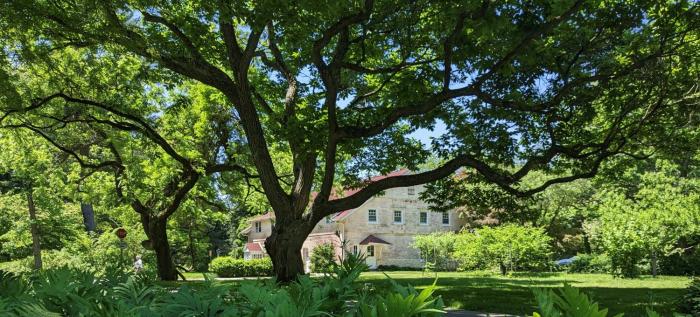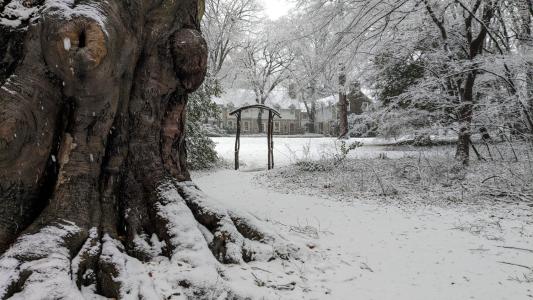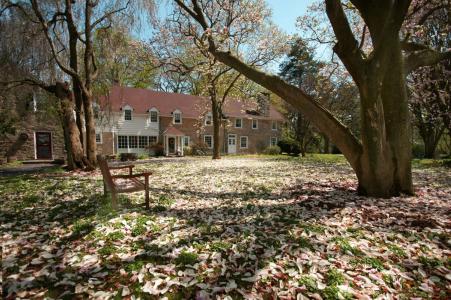You are here
Pendle Hill Arboretum

Pendle Hill Arboretum
Pendle Hill, a Quaker study, retreat, and conference center established in 1930, encompasses 24 acres of diverse ecosystems, including forests, meadows, wetlands, and cultivated gardens. Serving as a serene and educational natural environment, the Pendle Hill Arboretum prioritizes native plantings and healthy wildlife habitats. A mile-long perimeter path encircles the campus, connecting thirteen historic buildings and showcasing over 140 species of trees and shrubs, including notable heritage trees like a towering 90 foot tall Osage Orange, mature Sugar Maples, a trio of 70-year-old Dawn Redwoods, and the 300+-year-old American Beech, designated the largest in Pennsylvania and affectionately called “Mama Beech” among the Pendle Hill community.
The Pendle Hill Arboretum's commitment to land stewardship is grounded in Quaker values of respect for the Earth, employing sound cultural practices and minimizing chemical interventions to support a rich array of flora and fauna. The arboretum provides habitat for diverse wildlife, including numerous bird species, small mammals, deer, reptiles like garter snakes and box turtles, and aquatic life like bullfrogs and grass carp in its wetland pond. As part of the Quaker tradition that has significantly influenced Pennsylvania horticulture, Pendle Hill aims to foster a sustainable and inclusive natural space for its residents, guests, and the broader community. Accreditation with ArbNet further supports the organization’s mission to learn and share best practices in land stewardship and sustainability for a healthier and more connected world.



